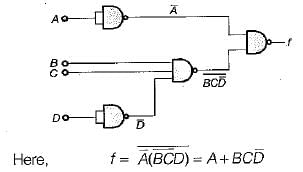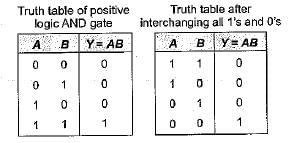Test: Logic Gates & Switching Circuits- 1 - Electronics and Communication Engineering (ECE) MCQ
10 Questions MCQ Test - Test: Logic Gates & Switching Circuits- 1
Match List-I (Logic gates) with List-ll (Symbols) and select the correct answer using the codes given below the lists
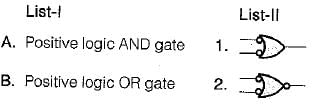

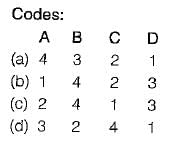



The minimum number of NAND gate required to implement the logic function given by  is
is
 is
isAssertion (A): When Os and 1s are interchanged in the truth table, the positive logic AND gate becomes negative logic OR gate, and positive logic NAND gate becomes negative logic NOR gate.
Reason (R): The simple method of converting the logic designation (i.e. from positive to negative logic or vice versa) is that all 0’s are replaced with 1s and all 1s with Os in the truth table.
Reason (R): The simple method of converting the logic designation (i.e. from positive to negative logic or vice versa) is that all 0’s are replaced with 1s and all 1s with Os in the truth table.
Match List-I (Logic gates) with List-ll (Applications) and select the correct answer using the codes given below the lists:
List-i
A. Exclusive OR gate
B. NOT gate
C. Exclusive NOR gate
D. NOR gate
List-ll
1. As a controlled inverter
2. As an universal gate
3. Complementation
4. Even-odd parity check
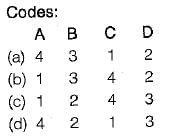
Assertion (A): The EX-NOR gate can be used as a "one-bit comparator.
Reason (R): The output of the EX-NOR gate is high if the number of high inputs to it is even while the output is low if the number of high inputs to it is odd.
Consider the following logic circuit: What is the required input condition (A, B, C) to make the output X = 1, for the above logic circuit

Match List-I (Logic expression) with List-ll (Equivalent expression) and select the correct answer using the codes given below the lists:
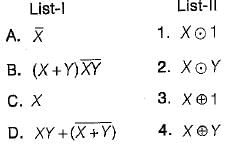
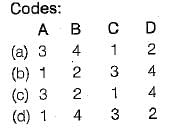
The code where all successive numbers differ from their preceding number by single bit is __________
Which of the following logic gate follow both commutative and associate law?


